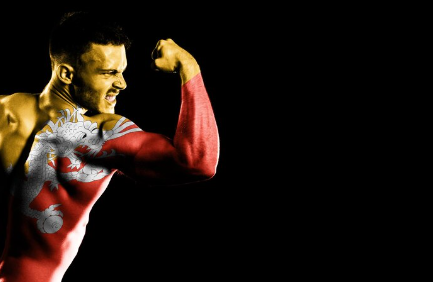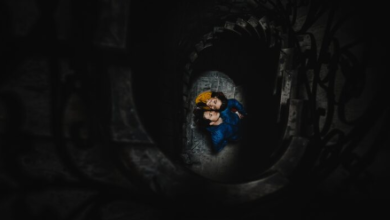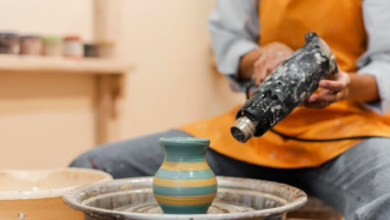Luton Outlaws: The Heart & Voice of Luton Town’s Hardcore Supporters

If you follow English football fan culture, you’ll often find that the stories behind the club are as much about the supporters as they are about the players. Among the most passionate and vocal of these in the Bedfordshire town of Luton is Luton Outlaws. Far from being just another supporters’ group, the Outlaws represent a deeper layer of fandom—one that lives in chants, forums, banners, and collective memory. Whether rallying at Kenilworth Road, debating on message boards or standing firm through lean years, the Luton Outlaws are woven into the identity of Luton Town FC itself. In this article, we’ll explore their origin, culture, influence (positive and controversial), digital footprint, relation with the club, and the challenges and future they may face. The goal is to provide a full picture of Luton Outlaws—to help fans, researchers, and curious readers understand what they represent and why they matter.
Origins & Identity of the Luton Outlaws
Tracing the precise origins of the Luton Outlaws is a little challenging, since much of their early presence existed informally—on terraces, among chants, in pubs, or grassroots circles. Over time, as fan culture moved more online, the Outlaws began to solidify as a recognizable name and voice for a subset of the most committed Luton Town supporters. Their identity rests on a blend of loyalty, intensity, and a certain rebellious edge. They adopt the moniker “Outlaws” not simply to sound bold, but as a symbolic assertion: they are not bound by convention; they speak loudly, unfiltered, and often push boundaries.
In forums and message boards, they formed a digital home where fans could debate tactics, transfers, club management, or broader football culture. The “Luton Outlaws” forums have earned both admiration for their dedication and criticism for their uncompromising tone. Their boards are explicit about being for adult fans, and even feature tongue-in-cheek disclaimers warning that content may include “conjecture, fiction, lies, … complete bollocks.” members.boardhost.com
From their chanting in the stadium to their behind-the-scenes debates, the Outlaws’ identity is tied to authenticity: to being unabashedly Luton in voice, color (often orange and black), and attitude.
Culture, Influence & Matchday Atmosphere
One of the most visible roles of the Luton Outlaws is their presence on matchdays—at Kenilworth Road and on the road. Their chants, banners, flags, and coordinated displays contribute to the stadium atmosphere, aiming not only to support the team but to intimidate opponents and uplift the energy of the crowd. In many ways, the Outlaws aim to be the “heartbeat” of the stadium. Their vocal support and organized backing help define what it feels like to attend a Luton match.
But their influence isn’t limited to the stands. In digital spaces—forums, social media, fan sites—the Outlaws help set tone, discourse, and fan sentiment. They become amplifiers, critics, rallyers, and cultural chroniclers. Because Luton Town FC has had its share of financial, administrative, and competitive ups and downs, the Outlaws often act as watchdogs, maintaining memory, pushing for accountability, or rallying support when times are tough.
Their influence is not always benign or uncontroversial. The nature of hardline fandom means sometimes lines are crossed: provocative chants, critical commentary, or actions that ignite conflict with rival fans or club authorities. Indeed, many intense fan communities walk the fine line between passion and excess, and the Outlaws are no exception.
Still, for many inside Luton and among the fanbase, the Outlaws are a vital cultural core: the people who refuse to let the club’s identity fade, who preserve traditions, debates, and fan pride.
Controversies, Criticism & Challenges
With strong voice often comes strong criticism. The Luton Outlaws have not been immune from controversy. Some critics point to hardline or aggressive postings on forums, harsh language, or clashes with rival fan groups. The fact that the Outlaws’ public forums disclaim that content may be provocative or offensive illustrates that they understand and accept boundary-pushing as part of their identity. members.boardhost.com
Beyond tone and content, there’s a challenge of representation: do the Outlaws speak for all fans, or only a subset? Their intensity and strong opinions may not align with all supporters, especially those who prefer more moderate, polite fandom. That tension—between being the “authentic voice” and risking alienation—is a constant tightrope.
Another challenge is club relation. How does Luton Town FC itself view the Outlaws? Some clubs embrace vocal supporter groups as long as behavior stays within bounds; others caution or distance themselves when controversy brews. The balance between freedom of fan voice and club reputation is delicate. For example, when fan groups criticize owners or policies, tensions can arise.
Additionally, with modernization—renovated stadiums, stricter security, ticketing regulation, noise ordinances, policing—some traditional forms of fan expression become harder. Banners, pyro, or chants may run into regulation. The digital migration also changes how influence happens; younger fans may not frequent forums but rather social media platforms, so adapting to new modes of engagement is essential.
Finally, sustainability matters: as membership turns over, maintaining institutional memory, shared culture, and leadership across generations is a challenge common to many longstanding fan groups.
Relationship with Luton Town FC & the Wider Fanbase
The Outlaws’ relationship with Luton Town FC is inherently symbiotic. The club benefits from their energy, loyalty, and the atmosphere they generate. In periods of struggle (on-field performance or governance), the Outlaws help maintain momentum, unity, and voice among fans. In better times, they help amplify pride and identity.
At the same time, the Outlaws depend on the club’s continued presence and viability. Without the team, there is no cause around which to rally. That mutual reliance underlies many fan-club relationships.
Within the wider fanbase, the Outlaws occupy a special niche. Many casual fans appreciate their energy without participating directly; others join or echo their chants; some remain critical. Because they often lead discourse, the Outlaws can influence mainstream narrative within the club’s culture. However, they must also contend with representing diverse voices—many fans might disagree with them, so maintaining legitimacy requires judgment, openness, and occasional correction.
Future & Legacy of the Luton Outlaws
Looking ahead, the Luton Outlaws may face several trajectories. If they continue to adapt—balancing tradition with evolving norms, moderating extreme voices, leveraging newer digital platforms—their influence can grow. They may formalize structures (membership drives, media presence, partnerships) to sustain presence.
Their legacy is already under formation: they are chroniclers of club history, community within fandom, and guardians of identity during turbulent times. Even if their voice morphs from the loudest corner to a more measured leader role, their roots in passion and commitment will remain central to their identity.
How they manage controversies, generational shift, digital change, and maintaining inclusive voice will shape whether they remain a respected core of Luton Town’s fan culture or become a relic. For now, though, they remain among the most evocative and audibly present symbols of Luton Outlaws — the raw heart of Luton fandom.
Conclusion
The Luton Outlaws are far more than a vocal supporters’ group—they are a cultural institution within Luton Town FC fandom. Through their chants, banners, forums, critiques, and memories, they help define what it means to be a fan of the Hatters. Their influence extends beyond the terraces into digital spaces, shaping discourse, sentiment, and fan identity. Yet with strength come challenges—controversies, representation tensions, changes in governance, and the evolving nature of fandom itself.
Still, their presence is a testament to deep loyalty: to a town, to a football club, to shared suffering and shared joy. For those who love Luton, the Outlaws are often the voice you hear when the rest of world is silent.
FAQ: Frequently Asked Questions about Luton Outlaws
Q1: What are the Luton Outlaws?
The Luton Outlaws are a hardline supporters’ group affiliated with Luton Town Football Club, known for their vocal presence, organized support at matches, digital forums, and strong identity as the club’s grassroots fan voice. Mating Press+1
Q2: Are they affiliated officially with Luton Town FC?
They are not known to be formally controlled by Luton Town FC; rather, they operate as an independent fan group. Their relationship with the club is typically informal, relying on mutual respect, though tensions may arise.
Q3: What controversies are associated with the Outlaws?
Controversies include provocative forum content, harsh language, possible clashes with rival fans, and representation concerns (whether they truly represent all fans). Their public forum even contains disclaimers about offensive content. members.boardhost.com
Q4: How do the Outlaws influence matchday atmosphere?
They contribute via chants, flags, banners, collective support, and organization in the stands—often aiming to boost morale for Luton Town and pressure opposing teams. Their presence can shape the energy of Kenilworth Road on matchdays.
Q5: Do the Outlaws have a large membership or only a few active members?
Like many passionate fan groups, the Outlaws likely have a core of highly active members and a larger base of sympathetic followers. The degree of formal membership is unclear, but their influence suggests deep reach among devoted fans.
Q6: How can new fans engage with or understand the Outlaws?
Attending matches, observing or joining chants respectfully, visiting their forums or online presence (if accessible), and learning club history through fan memory can help. Engaging with Outlaws’ discourse with openness and respect is key—while recognizing their intensity and particular culture.



